Speakers' Corner: The home of free speech
- Published
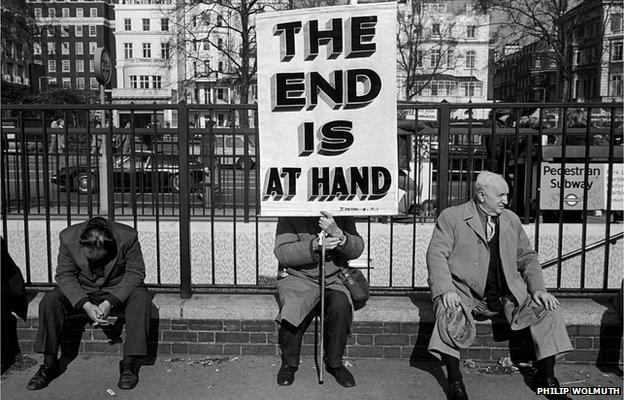
Speakers' Corner in London is well known as the home of free speech, where anyone can get on their soapbox and make their voice heard. Whether anyone will listen is of course another matter. Photographer Philip Wolmuth has been documenting the corner in London's Hyde Park for 35 years, and has just published a book of the work. Here, Wolmuth writes about the changes he has seen during that time.
It was the passion, irreverence and air of apparent anarchy that immediately attracted me on my first visit to Speakers' Corner in 1977.
A little over 30 years earlier George Orwell had described the place as "one of the minor wonders of the world", writing that in Hyde Park he had listened to "Indian nationalists, temperance reformers, Communists, Trotskyists, the Socialist Party of Great Britain (SPGB), the Catholic Evidence Society, freethinkers, vegetarians, Mormons, the Salvation Army, the Church Army, and a large variety of plain lunatics".
By 1977, the Indian nationalists had long since won their struggle, but many of the rest of the religious and fringe political groupings were still there, still preaching, arguing and debating.
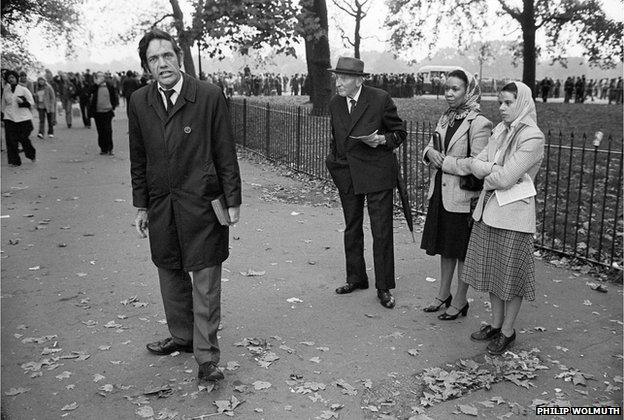
The subjects under discussion were then, and still are, almost entirely unrelated to day-to-day news headlines.
At least half the speakers are preachers. Issues of race, religion and nationality are discussed obsessively. The place has changed over the years: the Sunday afternoon crowds are smaller; there are fewer platforms belonging to organised groups, a narrower range of speakers, and the proportion of religious meetings has increased.
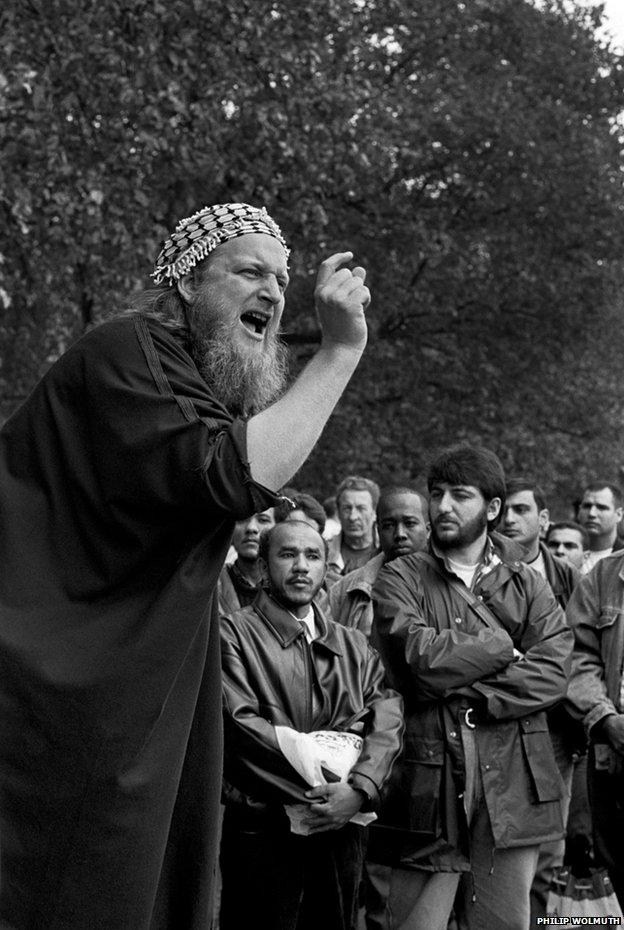
The demographics of both speakers and crowd have also shifted: now at least as many of the preachers are Muslim as Christian. Nevertheless, despite these changes, Speakers' Corner retains the unique buzz generated by the intensity and eccentricity of face-to-face argument.
What's going on in the park becomes clearer with repeat visits. Some of the regulars - speakers, hecklers and observers - have been going there for years. Some of the arguments, particularly those involving small groups debating the merits or otherwise of Bible and Koran, continue from one week to the next. Some of the heckles, hilarious at first hearing, become quite stale fourth time around.
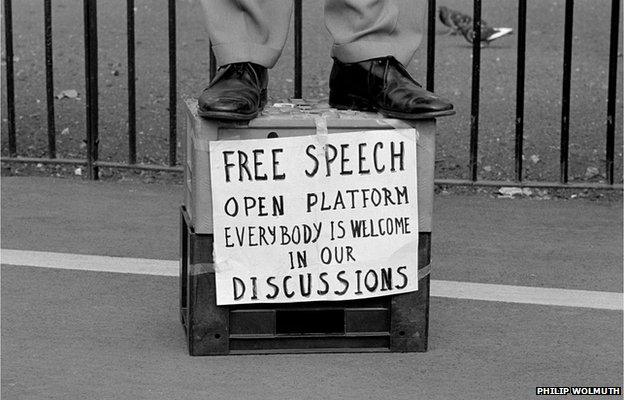
But there is plenty else to engage with.
The meetings of Heiko Khoo, a Marxist who has spoken in the park since 1986, draw some of the biggest crowds with erudite but accessible discussions on global political and economic issues.
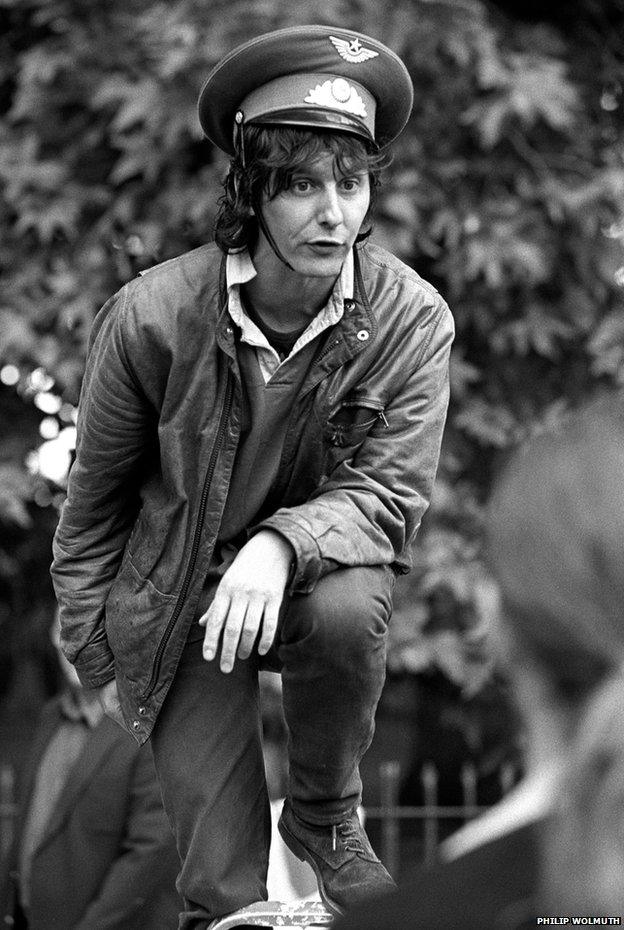
Heiko Khoo at Speakers' Corner
Mr Khoo's meetings are reminiscent in style, if not content, to the debates around the the platform of Lord Soper, Methodist minister, socialist and pacifist, who spoke regularly at Speakers' Corner from 1926 until his death in 1998.
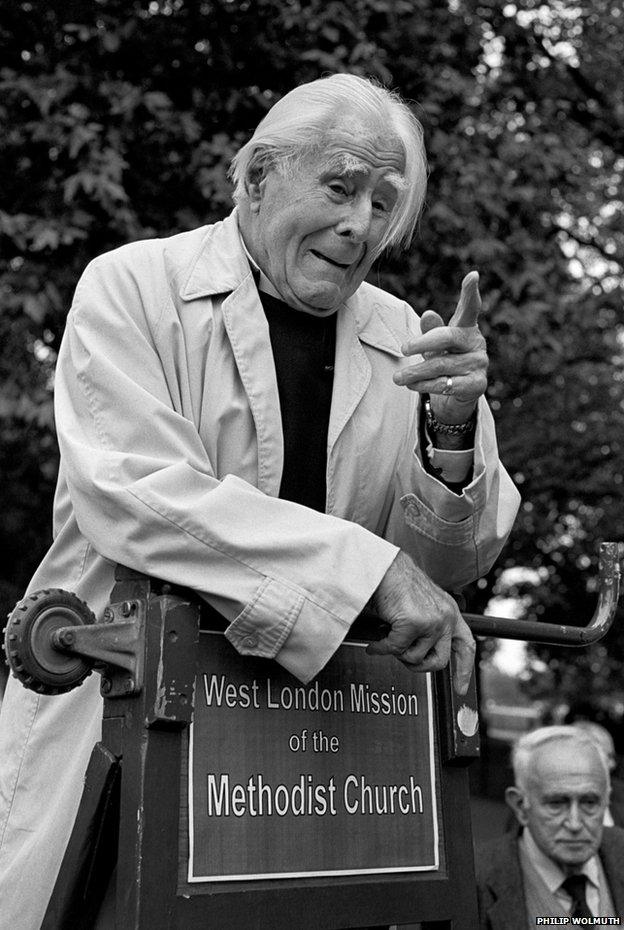
Lord Soper speaking in 1994
The anarchist and alternative comedian Tony Allen, who made the transition from heckler to speaker in the mid-1970s, and writer, film-maker and internationalist Ishmahil Blagrove, who first took to a ladder in the 1980s, can both still be heard from time to time.
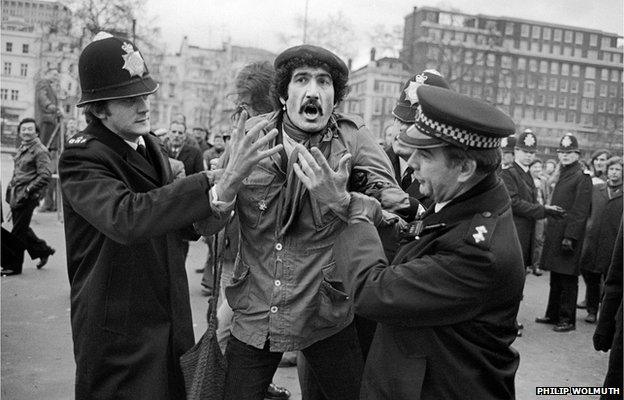
Tony Allen being arrested at Speakers' Corner in 1979
Mr Blagrove was one of a new generation of young, black British speakers who came to talk, heckle and debate on issues of racism, imperialism and black identity in the 1980s and 1990s - sometimes in anger, often with great humour - and others with similar interests also still make occasional visits.
Intense political discussions conducted in Arabic are a new feature of recent years: frustrating for non-Arabic speakers, but a reflection of the demographic changes in London as a whole and particularly of the area neighbouring Hyde Park.
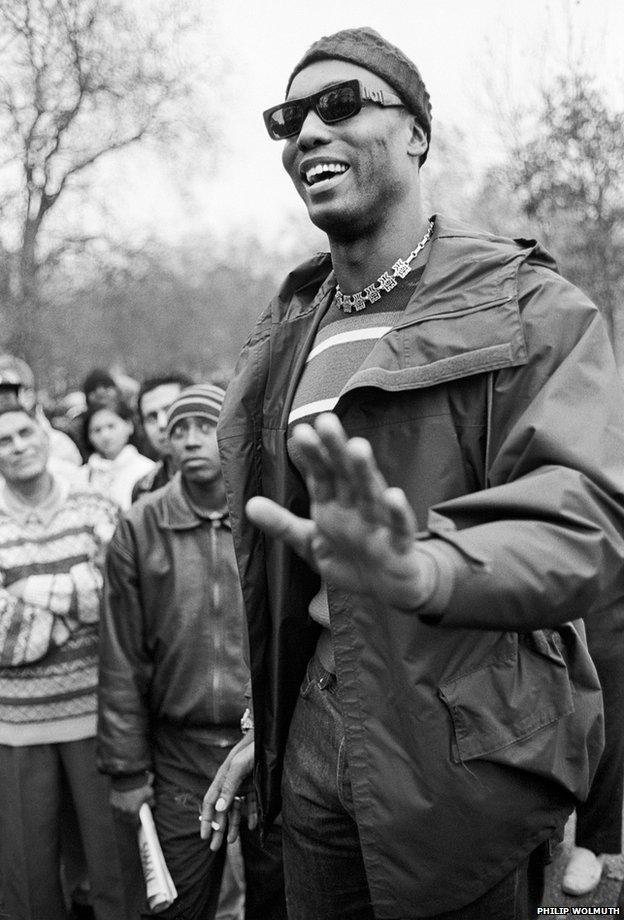
Ishmahil Blagrove in 2001
Even some of the religious debates - intelligent design is a favourite topic - can become intriguingly philosophical.
This is what genuine, unmediated, public debate looks and sounds like.
In both style and content, it's quite different from the frequently abusive, often anonymous exchanges on Twitter and other online social media platforms.
And it's nothing like the carefully controlled exchanges of sound bites and unquestioned assumptions that now pass for debate on our front pages and TV screens.
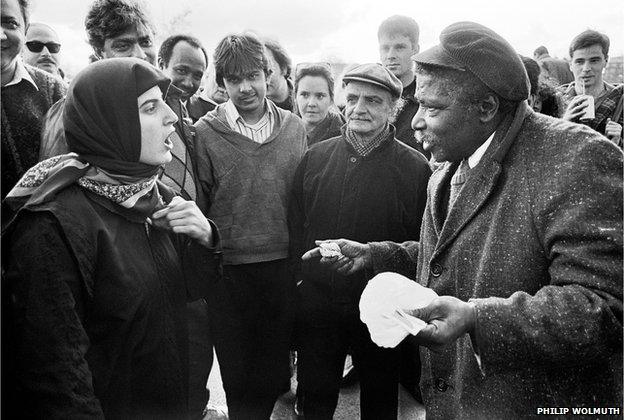
When ordinary people get together to talk to each other face-to-face, they can be challenged immediately to explain and justify what they are saying and can't get away with just sounding important. Lord Soper called it "the fellowship of controversy".
We need a lot more of it.
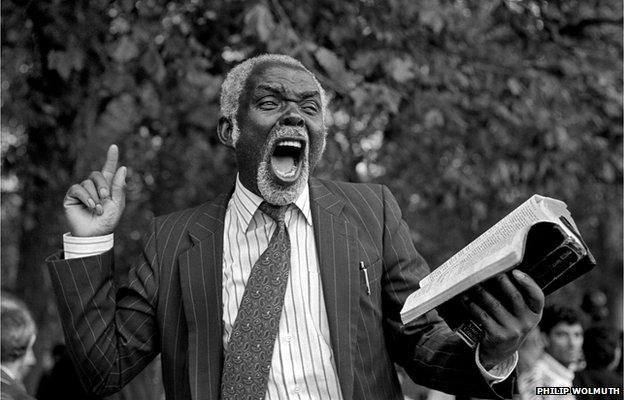
A Christian preacher makes his point in 1993
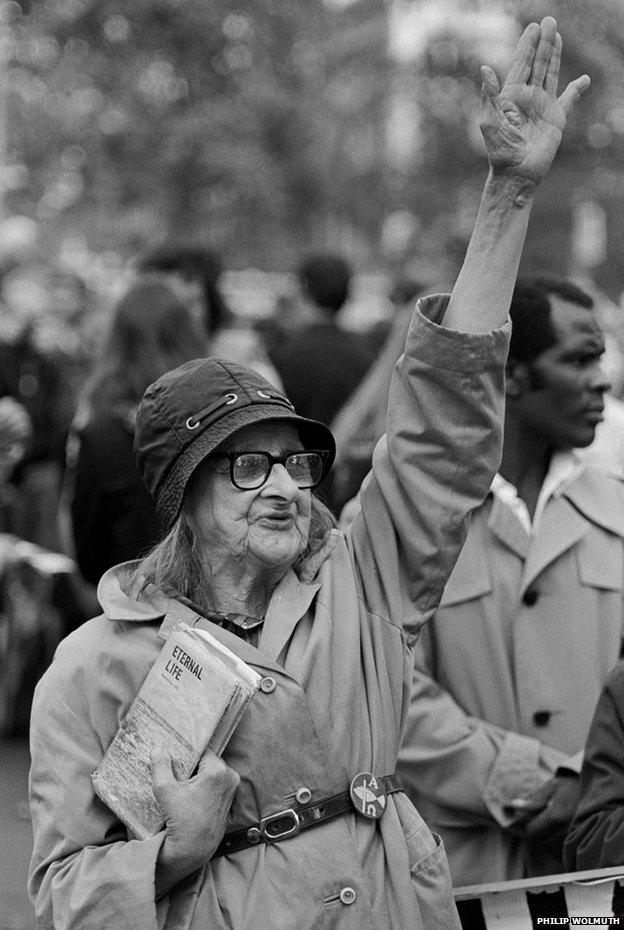
A woman proclaiming eternal life in 1978
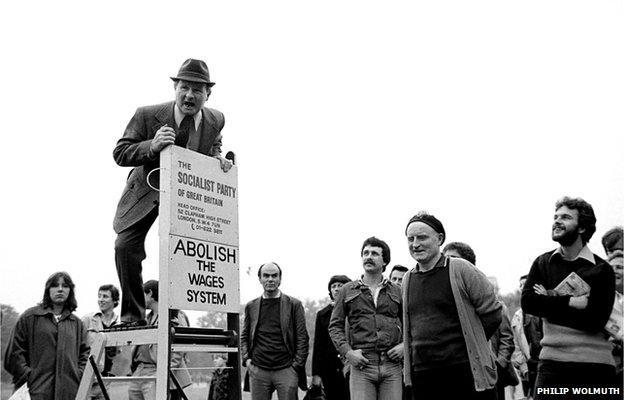
A Socialist draws a crowd in 1978
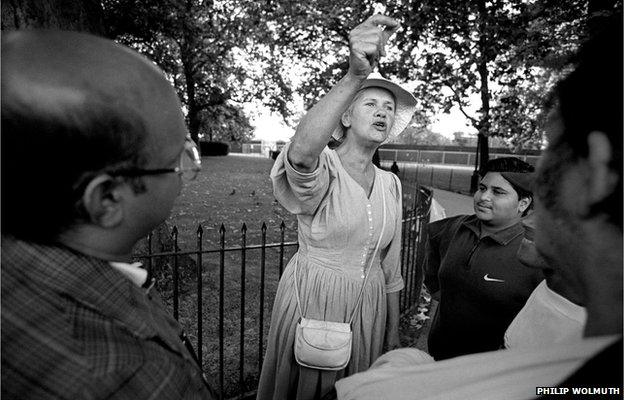
Women speakers are in the minority
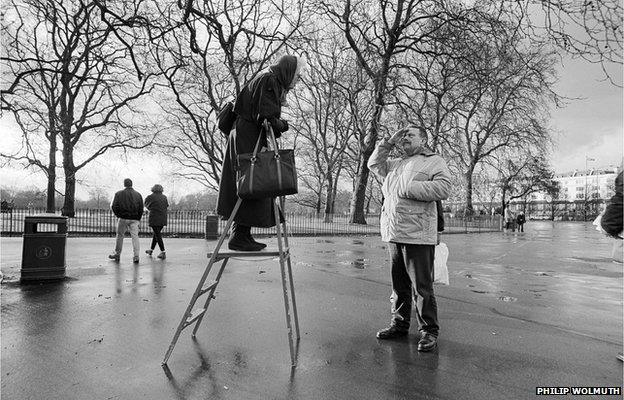
A speaker from the Catholic Evidence Guild in 1995
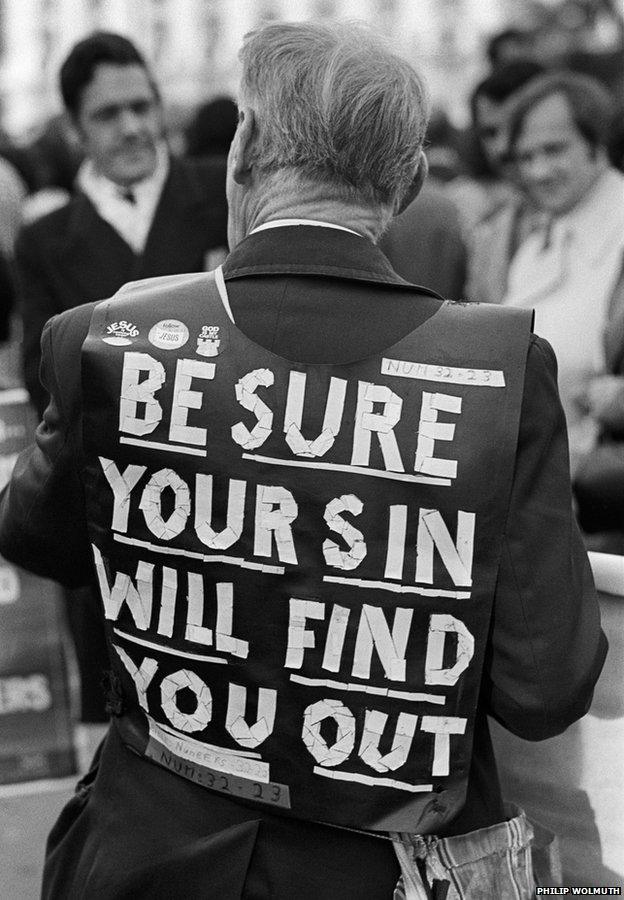
Another Christian preacher in 1977
Speakers' Corner: Debate, democracy and disturbing the peace by Philip Wolmuth is published by The History Press